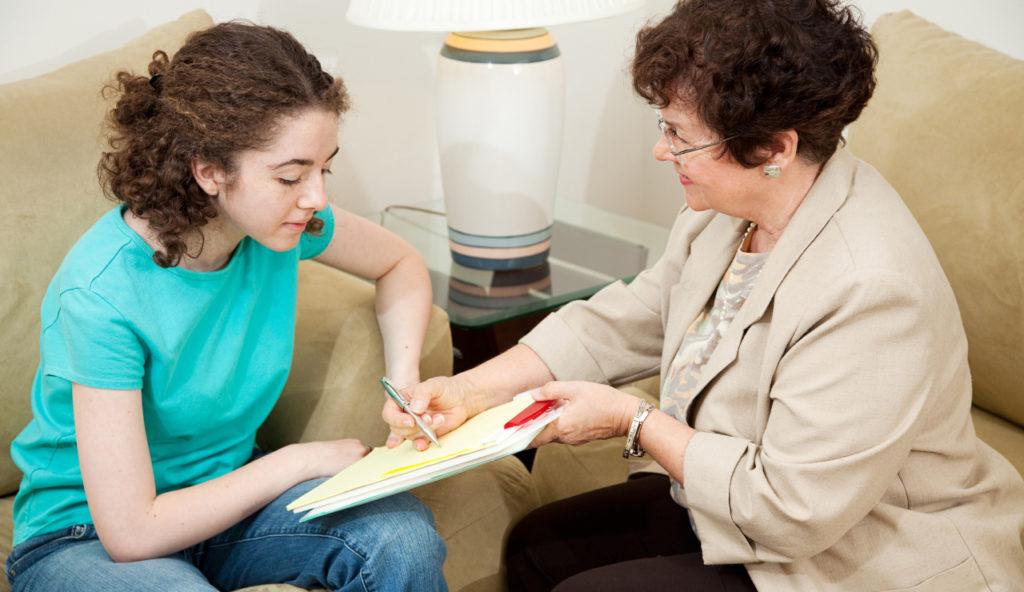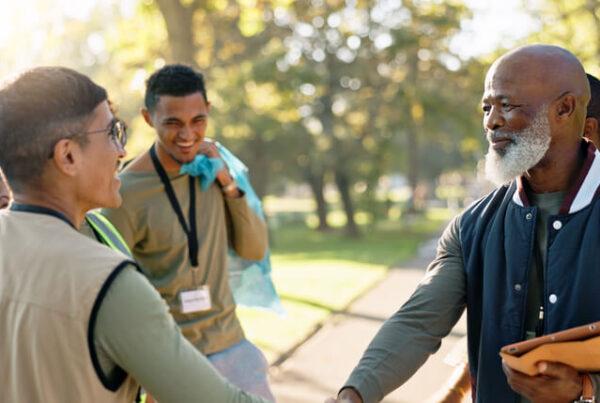With a broad set of skills and a particular passion for helping others, a Community Service Worker (CSW) is well-equipped to enter a range of rewarding career paths. At the Academy of Learning, future CSWs receive training in psychology fundamentals, ethics, communication, addictions, counselling, report writing, case management and social/government services. These professionals are also skilled in a number of computerized business software applications and possess strong administrative capabilities. Before completion of the program, students will also gain valuable on-site work experience, helping them build the practical skills necessary to transition to a rewarding career upon graduation.
With their training and experience, qualified CSWs can move on to a number of positions within the field. Thus, a day in the life on the job can look different depending on the setting in which a CSW is working. Below, discover what a day on the job could look like as a Community Service Worker in three different types of roles. The moment when you identify the right career path for you as a CSW, you’ll be able to prepare for a successful future.
Train online or on-campus for a job that pays more and means more.
Considering a career change?
Working in Educational Services after Community Service Programs
After completing your community service and addictions worker training, one option you might consider is to find employment in the education sector, either with school boards or another education provider. CSWs in these roles often work with students to address social or personal issues, and if you are passionate about helping youth, this path could be right for you. The day in the life of a CSW working in the education sector might look something like this:
- Upon arriving at school in the morning, you’ll have one-on-one sessions with a few different students who require additional academic support. You’ll provide counselling to ensure that their needs are being met, and work with them to develop some strategies to help them succeed in a classroom environment.
- In the afternoon, you’ll host a meeting with a student and their parents, discussing how the student is performing in school, both socially and academically, and what steps their parents can take to support them at home.
- After finalizing your documentation and paperwork for the day, it’s time to head home.
As a CSW working within an educational setting, you’ll have the rewarding job of guiding youth to overcome challenges, enabling them to achieve their goals and lead fulfilling lives.

Grads of community service worker programs may work in the education sector
Working in Shifts as a Community Service Worker
For graduates of community service programs, another common career path involves pursuing opportunities at long-term care facilities or residential homes. Positions at these types of facilities will typically be scheduled in shifts, where you’ll rotate with other CSW staff to meet the needs of residents. In this role, a shift might look something like this:
- After arriving at work in the morning, your day begins with a meeting, where any new policies, events or news from the last shift are discussed.
- Your day begins, which involves organizing activities for residents, meeting with families of prospective residents, and ensuring that operations are running smoothly throughout the care home.
- At the end of the day, you’ll compile reports of the residents you’ve assisted and any other occurrences within the care home, keeping the next shift of staff updated on any changes before they take over.
If the prospect of working in shifts is appealing, a career at a long-term care facility or a similar organization may be right for you.
Community Service Workers Can Find Employment at Organizations
After graduation, you may be interested in working for an organization that addresses a specific societal need. Organizations may include those which provide assistance and counselling services for families, youths, homeless people, victims of domestic violence and more. As a CSW working in one of these community-oriented organizations, your day might include responsibilities such as:
- Assessing the needs of clients seeking assistance
- Compiling reports on clients’ situations
- Creating support programs and gathering resources for clients
With training at the Academy of Learning’s career colleges, you’ll be prepared to embark on any of these career paths in the field of community service work. If you think you’re a good fit for the job, consider training at AOLCC.
Earn more money in a career you love. In less than a year.
Over 100,000 people have found their fresh start through Canada’s largest career college network, Academy of Learning Career College.






